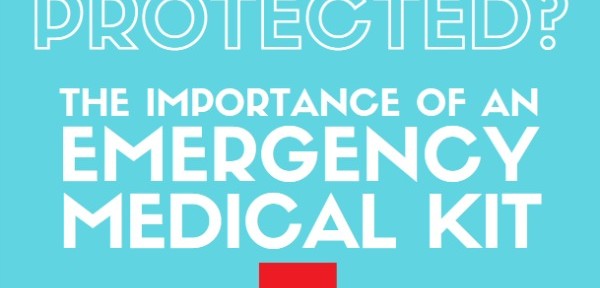 The fact of the matter is this: medical emergencies are a frequent occurrence in dental offices, and being prepared to handle such an emergency properly and efficiently is of paramount importance both for your patients and your practice. By being prepared, we don’t mean merely having a phone and being able to dial 911. Calling 911 is an important step in the emergency treatment process, but with EMS response times averaging 9-15 minutes, offices should be trained and equipped to begin in-office treatment immediately.
The fact of the matter is this: medical emergencies are a frequent occurrence in dental offices, and being prepared to handle such an emergency properly and efficiently is of paramount importance both for your patients and your practice. By being prepared, we don’t mean merely having a phone and being able to dial 911. Calling 911 is an important step in the emergency treatment process, but with EMS response times averaging 9-15 minutes, offices should be trained and equipped to begin in-office treatment immediately.
In order to be properly equipped, it is advised (and in some states required) that every office stock an up-to-date emergency medical kit, a kit that provides a basic set of medications intended for the treatment of a medical emergency. Read on for information including the recommended components of an emergency medical kit, best practices surrounding its use, the potential liabilities of noncompliance, and where to go to find more information on this subject.

Emergency medical kits generally contain 13-20 items. You may choose to stock either a basic kit or a more advanced kit depending on the level of dentistry you practice. The components of basic kits are catered towards general dental practices that perform routine dental procedures, while advanced kits are recommended if your office performs more advanced procedures. These sorts of procedures generally require more complicated and serious drugs, which likewise can have more complicated and serious side effects.
The American Dental Association (ADA) identifies 6 essential drugs that belong in every emergency kit in every dental office in the United States. These drugs include (1)glucose, (2)diphenhydramine, (3)nitroglycerin, (4)albuterol, (5)aspirin, and (6)epinephrine.
Specific regulations are enforced at a state level, but listed below are some additional core drugs that we recommend including in your kits. Each of these items can be searched for on PattersonDental.com directly by name or item number. You may find additional information on the items below by visiting our dedicated emergency medical kit landing page.

As we shared earlier, specific requirements regarding emergency medical kits vary from state to state. You may follow this link to be directed to an interactive map assembled by the American Association of Dental Boards (AADB), which lists the websites and contact information for each state’s individual dental board. As a supplemental resource to your state’s specific demands, the California Dental Association (CDA) has assembled some general best practices which you may read more about by clicking here!
In addition to having the recommended/required drugs in-stock and up-to-date, best practices dictate that dentists and staff all have the proper knowledge and training to administer them. Since these products are not used every day, regular review and continued education is necessary. The ADA even suggests that “conducting mock emergencies may help office staff to be more confident with their roles when a real emergency occurs.” [Source]

Not being prepared for a medical emergency or knowing precisely when and how to use what drug could be a liability on the part of your practice. Depending on your state’s laws, the consequences could be severe. Fox news recently covered this story – not the first tale of its kind – of a Minnesota dentist’s licensed being removed by the state’s board of dentistry for “failing to appropriately manage a medical emergency.” One of his patients passed away from cardiac arrest following the removal of her wisdom teeth.
It cannot be over-stated that stocking emergency medications but having staff that lacks the appropriate training and certification to administer them, can be a liability.

- Dental Economics magazine published a comprehensive overview on emergency medical kits, which you can read a digital copy of HERE.
- Patterson Dental’s dedicated landing page is a great place to head when you’re ready to begin shopping for emergency medical kit components. CLICK HERE to be redirected to that page.
- This ADA article contains 15+ additional resources surrounding the topic of medical emergencies in the dental office, including available continuing education courses and guidelines for creating emergency action plans.
- If you plan to order controlled substances through Patterson, there is certain documentation you’ll need on-hand. Our blog post “Controlled Substances 101” covers everything you need to know!
Does your office have an emergency medical kit? Are any of its contents expired? Is each medication in-stock? Check your kit often to be sure you’re doing all you can to protect your patients and your practice. Let us know if you have any questions in the comments below!





Does Patterson sell Ex kits. If so, do you do routine and regular restocks?
Hi JB! Thanks for reading. At this time Patterson does not supply full emergency kits. We do, however, carry all of the individual products that make up a kit. If you are looking to re-stock any items within your emergency medical kit, we would be happy to help with that re-stocking process! It isn’t an automated process, but by working with your dedicated sales rep, we can ensure that your kit will be up-to-date and fully stocked.
I am a rep and want to know if we provide a medical kit in full or only the refills? Once the customer fills out the RX report.
Leslie Wilson branch 438
Hi Leslie, great to hear from you! We currently only supply refills. We are looking into finding potential sources that will provide us with a full kit, but again, currently we are only able to offer refills.